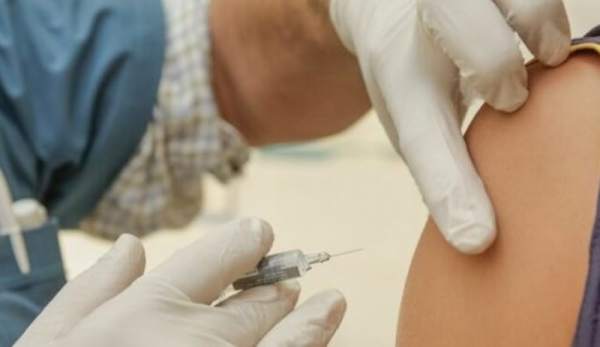
- Next Article Dozens of climate protesters on trial at District Court of Helsinki
The Finnish Institute for Health and Welfare (THL) has issued new guidelines recommending that welfare regions offer a booster dose of the whooping cough vaccine to pregnant women. This move aims to protect newborns from severe cases of whooping cough, particularly in light of a significant increase in cases reported this year.
Whooping cough, also known as pertussis, poses a serious risk to infants under one year of age, especially newborns who have not yet received their first vaccine dose at three months old.
To provide early protection, THL recommends that pregnant women receive a booster dose between the 16th and 32nd weeks of pregnancy. The antibodies from the vaccine can be transferred to the fetus, offering the newborn protection against whooping cough. If necessary, the vaccine can also be administered later in the pregnancy.
“Vaccinating the mother during pregnancy is safe and effectively protects the baby during the first critical months of life when the risk of severe whooping cough is highest,” says THL’s Chief Physician, Hanna Nohynek.
This recommendation comes in response to a surge in whooping cough cases both in Finland and across Europe, particularly among younger age groups. So far in 2024, Finland has reported 1,233 laboratory-confirmed cases of whooping cough, a significant increase compared to the pre-pandemic annual average of 200 to 500 cases. These confirmed cases likely represent only a small fraction of the total number of infections in the population.
Vaccine Availability and Implementation
The whooping cough booster can be administered during routine prenatal care visits, such as the health check typically scheduled between 22 and 24 weeks of pregnancy. The vaccine is voluntary and free of charge.
The dtap vaccine, which offers strong protection against whooping cough and related mortality in infants, will be provided. “Vaccines containing whooping cough components have been used for decades. They are effective against severe illness, though the protection is not very long-lasting. These vaccines are safe for pregnant women, and the child’s vaccination schedule continues as usual, regardless of whether the mother received the whooping cough vaccine during pregnancy,” Nohynek explains.
As part of Finland’s national vaccination program, whooping cough vaccines are administered to children at three, five, and twelve months, as well as at four years old. Additionally, booster doses are offered to all 14-15-year-olds and young adults at age 25.
If a pregnant woman has already received the dtap booster as part of the standard age-based schedule, no additional dose is needed. Otherwise, THL recommends the booster for all pregnant women from the 16th week onward, regardless of when they last received the whooping cough vaccine.
Currently, the pregnancy-specific dtap booster is used in nearly all EU countries and many other high-income nations. In Finland, the new guidance for offering the vaccine to pregnant women is in effect until the end of January 2025, with an extension possible if needed.
Whooping Cough: Symptoms and Risks
Whooping cough is transmitted through respiratory droplets and can be contracted multiple times throughout a person’s life, as previous infections do not provide lifelong immunity.
The disease typically manifests as a persistent cough lasting several weeks to months, which gradually becomes more severe and comes in spasms. In infants, the cough can be so severe that it leads to difficulty breathing, characterized by a “whooping” sound during inhalation at the end of a coughing fit. Vomiting may also occur after coughing. Between coughing spells, patients generally feel well with few symptoms.
In young infants, however, symptoms can be atypical, and the cough may be absent in the early stages. The only signs might be gagging, vomiting, or breathing pauses. Even the suspicion of whooping cough in small infants is usually enough to warrant hospital monitoring.
Early antibiotic treatment can mitigate the course of the disease if started in the initial stages.
HT
- Next Article Dozens of climate protesters on trial at District Court of Helsinki
Source: www.helsinkitimes.fi
